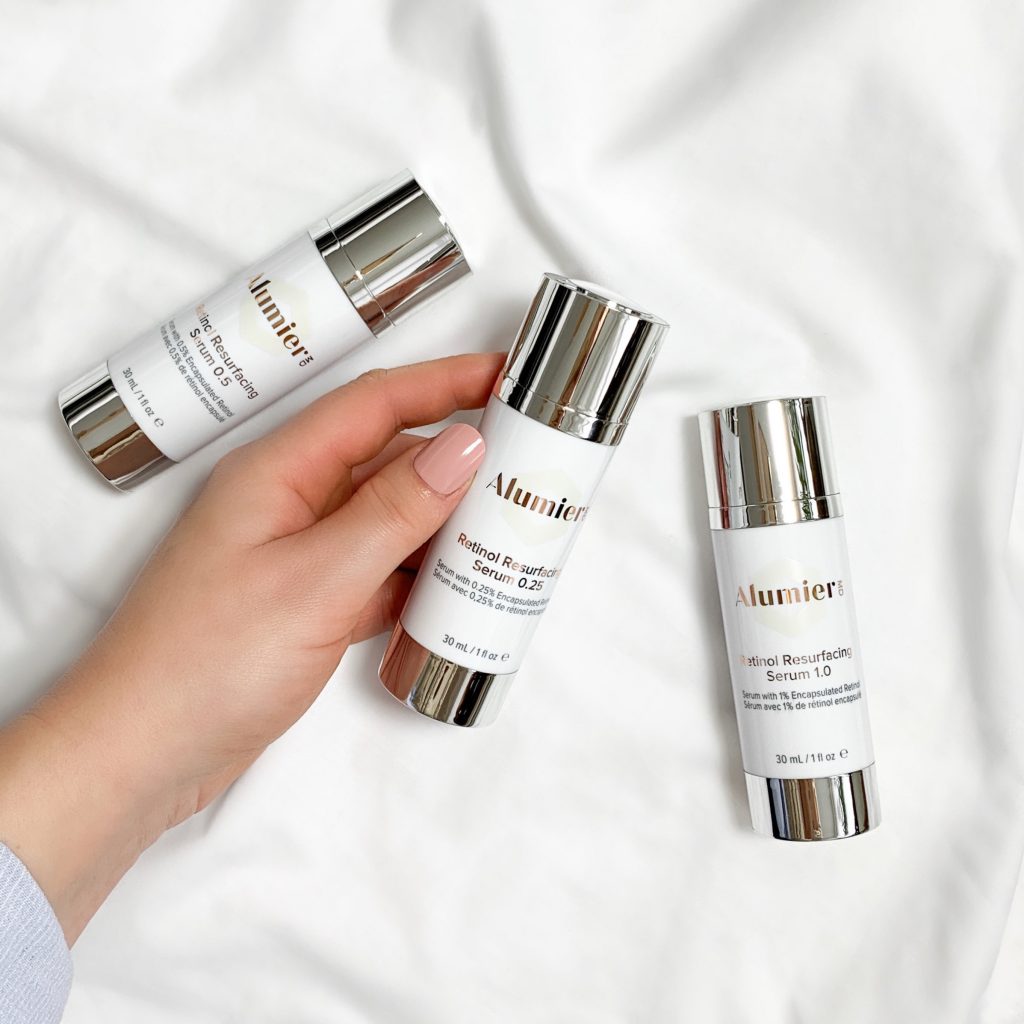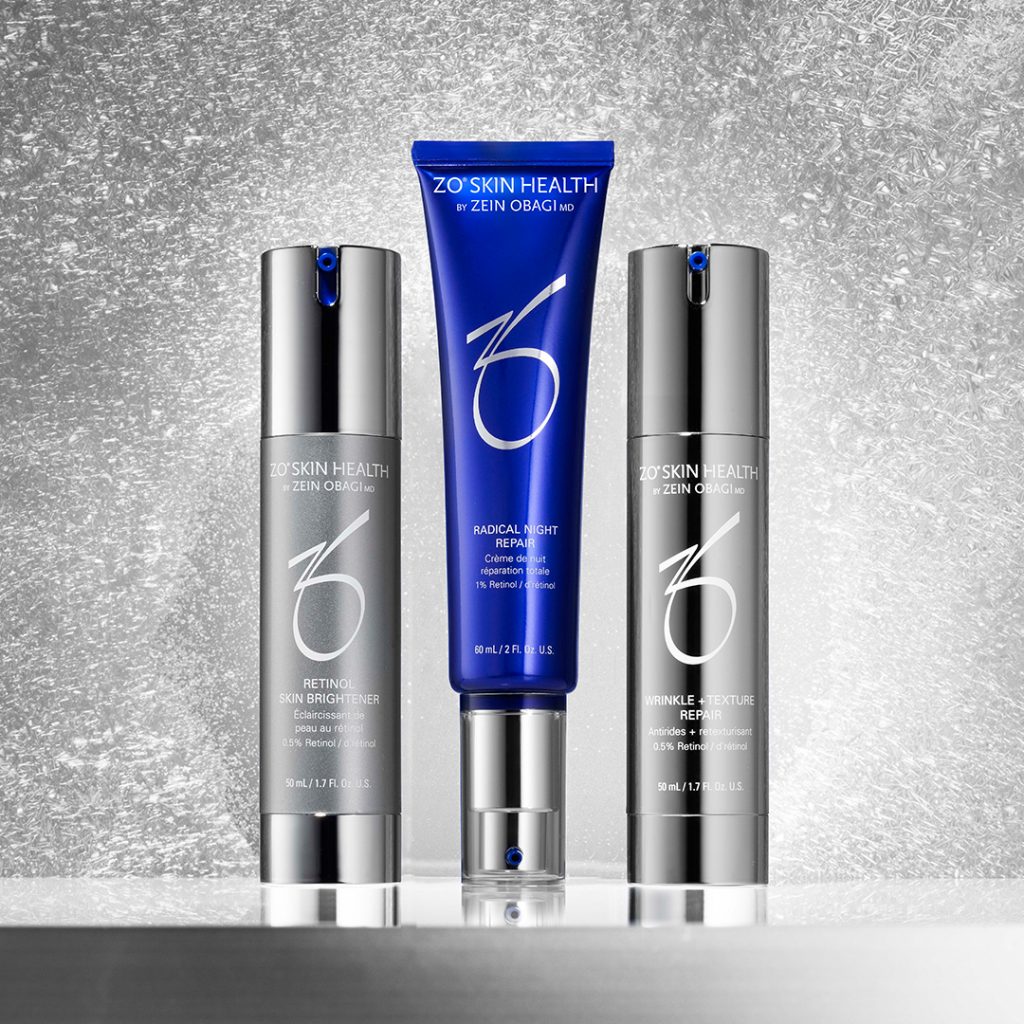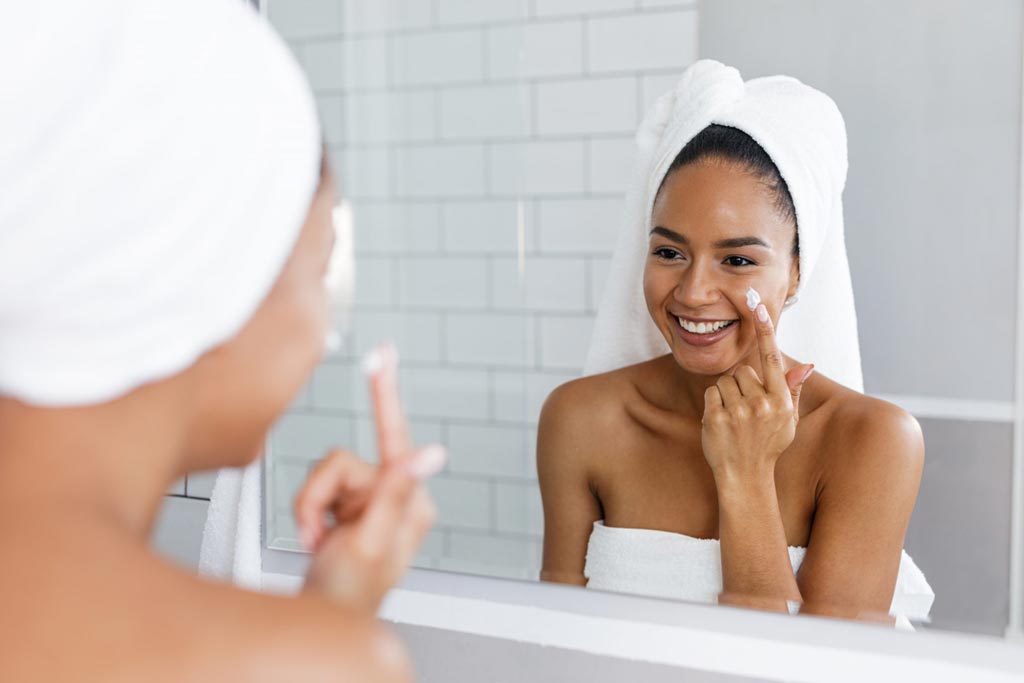The most common questions we get during an Advanced Skin Analysis consult are “should I be using a retinol?” Which is then promptly followed by “what is the difference between your retinol, the one at the drug store and the one my GP prescribed?” Retinols are a great way to enhance your skin health routine and there is often a safe and effective option for all skin types (when used properly).
Retinol vs. Retinoid?
Retinoids vs. Retinols – what is the difference? The short answer is that they are in the same family, but a little different. Retinoid is a blanket term for vitamin A derivatives which are then converted into retinoic acid to be used in skin care. The biggest difference between over-the-counter retinols and prescription retinoid is the concentration of the active ingredient, retinoic acid. Prescription retinoid products have a higher concentration of retinoic acid, which means the effects of it applied topically are faster and more intense. In most cases, they are also generally formulated with less skin supporting/hydrating ingredients. For these reasons, prescription retinoid products are typically recommended for short durations only. Retinols come in many strength and forms, generally esters; which essentially means that there is a longer conversion rate to become retinoic acid when applied to the skin. But this does not mean that they are not effective! Over the counter (OTC) retinols can achieve the same results as prescription retinoid, just at a slower and less aggressive pace. OTC retinols are also usually formulated with other hydrators and anti-aging ingredients to support the skin.

Retinol percentage:
Some drugstore/department store retinols will list a percentage of Vitamin A on the bottle that is similar to the percentage of vitamin A on a medical clinic OTC product. However, this does not mean that they are the same. Products sold OTC at medical clinics and medical spas are of a higher concentration than the drugstore products. This is because a product such as ZO Retinol Skin Brightener will delivery 1% retinol with every pump of product. This potency of the active vitamin A is why products like ZO are only offered through channels that provide oversight and support.
Anti-Aging & Texture:
Now that we have that out of the way, we can talk about all the wonderful things that retinol/retinoid products can do for the skin! Retinols are a power house skin care product that are most known for their anti-aging properties. They are considered “exfoliators” because they promote increased cellular turnover in the skin, pushing old cells up and out, and creating new ones. As a result of new healthy skin cells being created, new collagen cells are stimulated as well. This can diminish the appearance of fine lines and wrinkles, and reduce pore size.
Brightening
Increased cellular turnover can also aid in lightening of stubborn pigmentation and brightening of your overall complexion; so there is a good chance you will be prescribed a retinol if you have concerns about sun spots or hyperpigmentation.
Acne
Retinols are also a great product for treatment of acne. The exfoliation effect from use of retinols can help to remove dead skin and oils that can clog pores and cause acne. They help minimize the over-productive sebaceous activity, resulting in less inflammation and active break outs. And because they exfoliate the skin, post inflammatory pigmentation or scars from breakouts are more quickly resolved.

Despite all the wonderful things retinols/retinoids can do, usage does come with some side effects. It is important to introduce retinols to the skin slowly and gradually to minimize skin irritation. When introduced too quickly, retinols, can cause irritated, raw, peeling skin. We typically recommend starting with a low dose retinol, applied 1-2 times per week and increase as the skin beings to tolerate the product better. When used correctly, retinols should not cause anything more that some dry, peeling skin for up to 6 weeks as the skin becomes conditioned to regular use of retinol. Retinol products also make your skin more susceptible to damage from the sun and more sensitive to lasers, waxing and tattoos. It is important to consistently apply sun protection when using a retinol product. Even in the winter months. It is also crucial to speak with your medical aesthetician or spa esthetician and disclose all products being used on your skin before any treatment.
Our medical aestheticians and nurses are specifically trained to help you with your skin health concerns. We offer complimentary Advanced Skin Analysis consultations designed to provide you with a customized treatment plan. Contact us at (604) 888-9397 to schedule your free consultation or request a consultation online.


Leave a Reply